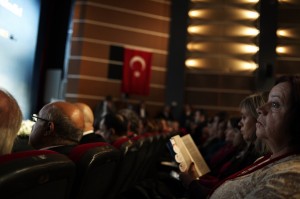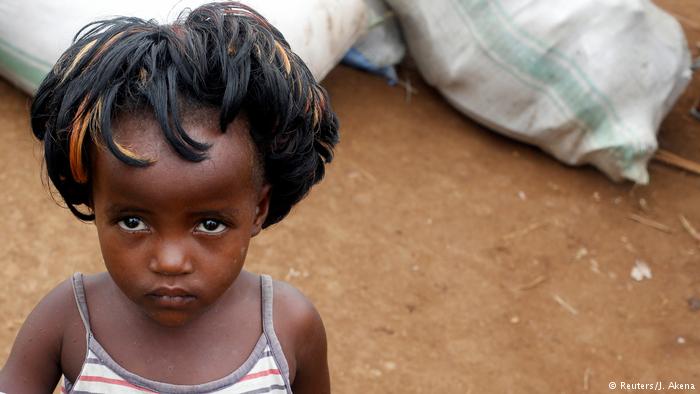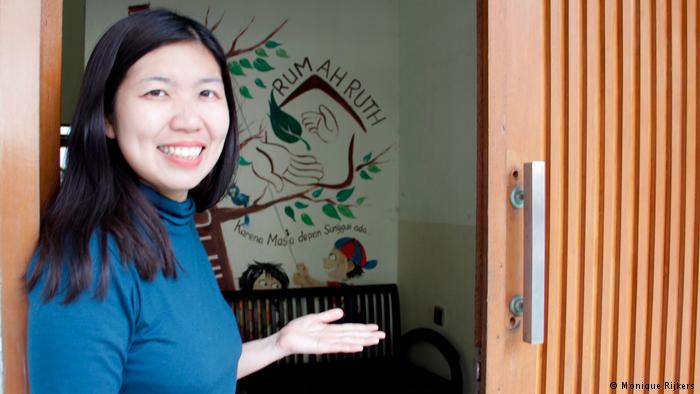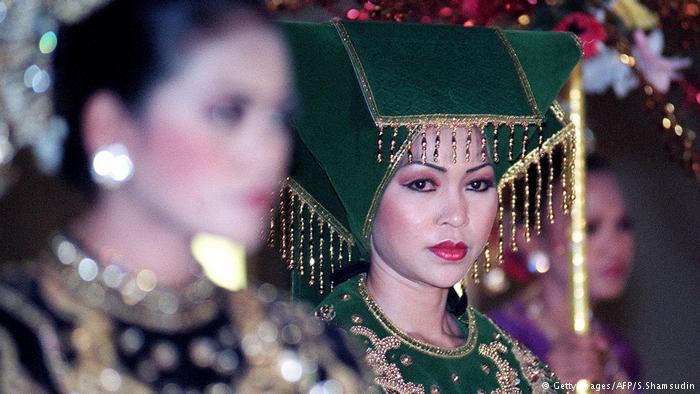Rising like a phoenix
“I am a Bosnian Muslim woman who has survived sexual violence during the war in Bosnia and Herzegovina, but I now speak in the name of all women who have survived sexual torture and violence in conflict, regardless of ethnic affiliation, the color of their skin, faith, age or nationality… I wish to convey to the women of the world who have survived similar horrors to speak up and let the truth be known, because they have nothing to be ashamed of.
These are the now-famous words of one of the bravest women I have ever had the pleasure of meeting and working alongside. Enisa Salčinović has gone through arguably the darkest and most deplorable act of human cruelty a woman can experience during the Bosnian War, nearly 20 years ago. Foča, a small eastern Bosnian city with rolling prairies and hills of lush green, was her hometown, her perch atop the world, a place where she had built an idyllic future for herself with her husband Nusret, whom she had known since childhood.
She could hardly imagine that the city’s parks, where her two daughters had played throughout their childhood and the sports hall, which always teemed with innocent laughter, could become hotbeds of sexual torture and rape by Serb forces, atrocities which she too had to face.”Foča was a town of friendship, celebration, a town on two rivers, a town of roses, beauty… I loved dancing more than anything, not a single dance night passed without me there,” recalls Enisa with much nostalgia, but no tears. She has long learned to fight back the sadness, because to wallow too long is to forgo fighting the atrocitieshead-on in today’s post-war Bosnia and fighting for the legislation of laws to recognize these abhorrent crimes, as she unendingly does. “With my husband (Nusret), I had had a wonderful life, he never hit me or raised his voice at me… I was never a victim, neither as a child nor as a wife, and then finally, at 36, I became one.”
Doomsday
Her almost-perfect life with her husband and two daughters came crashing down on April 8, 1992, the day the shelling of the city began. After that fateful day, nothing would ever be the same for Enisa. In the course of less than three months, she had become the target of repeated rape in the very gymnasium her children used to play in by a Serb guerrilla, a man her daughter referred to as the “fat man.” She saw Nusret for the last time being taken away for “apparent questioning” and was forced to leave her city to Macedonia, where she would remain for the next seven years with her daughters.
An older Serb man, whom she had helped out with cigarettes and food in the days before the conflict, pointed a rifle at her and told her to run as far as her legs could take her. When she had put her plan into effect and hid to prepare for the escape, he came back looking for her. He raped her in front of her family, a fate many other Bosniak women had encountered all across the country. A megaphone announcement the next day at the main square proclaimed that all remaining non-Serb civilians were to be deported…to some place.
An ambassador for women’s rights
Enisa and her two daughters, then aged eight and ten, were transported to a refugee camp in Macedonia. In the meantime, back home, her husband was shot and killed in a systemic cleansing of male non-Serbs in the city. But like a phoenix rising from the remains desolation, in less than two decades following these events, Enisa became the de facto ambassador of an initiative spearheaded by the United Nations Population Fund in Bosnia and has traveled around the world to raise international awareness about systemic rape through her harrowing story – to places such as New York City (where she addressed the United Nations) and Hamburg, Germany.
Following her appearance in the documentary “Bosnia: Healing the Wounds of War” as the main character, she has appeared in Bosnian and Western European print media and television stations such as Al Jazeera. She was also appointed head of the Association of Torture Camp Survivors of Canton Sarajevo, which seeks to push for the recognition of this problem and helps with reconciliation among women on a personal-mental level.
Overcoming the stigma
What amazes absolutely everyone around Enisa is her unendingly impressive ability to address this issue with a cold, yet universally intelligible determination to hit back at sexual and gender-based violence and say, I will change this. Her uncanny sense of humor and warm acceptance of those around her is what makes her a force to be reckoned with.Achieving this was difficult and far from effortless as it sounds now on paper – it took years of facing nightmares and a move from silence, to anonymity, to ultimately admitting the horrors. The stigma of silence and shame of one not wanting the other to know about the problem is one of the most potently dominant deterrents in post-rape discussion.
Enisa, who now lives in a small flat in Sarajevo with her daughter, says, “I think that it’s the (repeated) negation of the existence of wartime rape and concentration camps and the lack of acceptance of past crimes that compelled me to talk, compelled me to react.” She always says that she wants to talk about it while she’s still alive, so it can all be documented. She wants to talk in the name of all the women who had survived greater horrors than she can ever imagine and who aren’t, even today, in a state of stepping forth and speaking about them.
Although she personally says she is a stronger person, she maintains that this isn’t about her or women only in Bosnia. “This is a fight for the women who still aren’t aware of how to inform themselves, how to seek out and have their fundamental rights realized.” She believes that we are doomed to greater lapses in fundamental women’s rights and the ultimate lack of recognition of great women worldwide if voices like hers are not heard: “I am a fighter. I am alive; I will never let them break me. Someone once said that rape is a kind of slow murder. I haven’t let them murder my spirit, and I will never let them. I wish to look far ahead, into a brighter future.”
Author: Nedim Hadrovic
Editor: Manasi Gopalakrishnan







